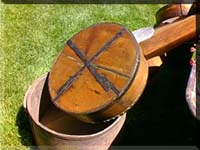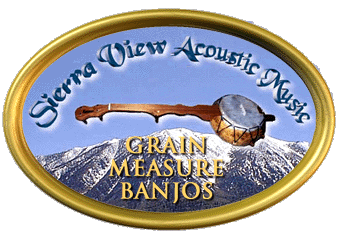 |
||
|
|
||
|
New From Sierra View Acoustic Music |
||
| I am now producing a limited number of grain measure banjos. These instruments recreate those made during the transition from handmade gourd banjos to those made in factories. In the middle third of the 19th century, players began experimenting with ways to build banjos that were sturdier than the plantation gourds. Traditionally, animal skins were tacked onto several types of frames, notably cheese boxes and grain measures. The resulting banjos were sturdy and had the power to project, a quality sought after by circus and minstrel performers. |
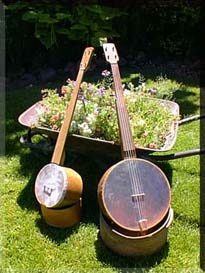 |
|
|
Grain measures (wooden buckets) were commonly found in country stores in diverse sizes. As the name implies they were used to measure out grain in precise amounts. They were usually constructed from oak which was bent into a circle and secured with a lap joint. Two sizes of these measures were particularly suitable for conversion to banjo pots: 11" to 11 1/2" and the larger 14" to 14 1/2". These buckets were a little over 6" high and could be halved to yield two banjo rims, one open backed and the other closed, the bottom of the bucket forming the back of the pot.
|
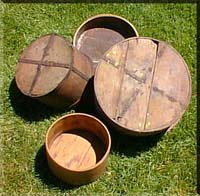 I buy authentic, antique grain measures when I can get them at a reasonable price. After constructing the neck, I fit it to the grain measure and finally tack on a skin head. When strung with gut strings, the resulting banjo is representative of a very early minstrel instrument. |
|
| Although no two banjos are the same, they usually fall into two general categories. The first, Civil War Camp Banjos, includes instruments that are based on a grain measure banjo displayed at the Gettysburg Battlefield Museum. I can make them "distressed" to closely resemble the actual instrument (suitable for historical reenactments), or with rather new looking necks minus the bumps, dents and scratches. | ||
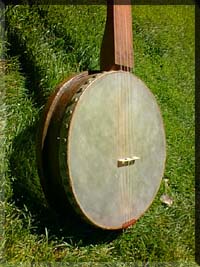 |
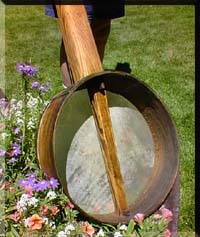 |
|
|
The second category, Early Minstrel Tackhead Banjos, features fancier necks and headstocks. In addition, they usually have hardwood fingerboards. These banjos can also be "distressed" to simulate a well worn instrument. Availability of these banjos is dependent on my being able to buy grain measures. It's a chance to own a banjo that represents a significant step in the development of the banjo in the United States.
|
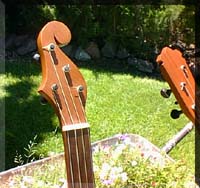 |
|
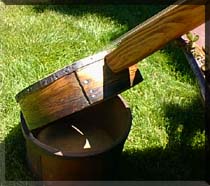 |
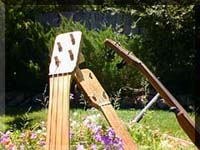 |
|
|
|
||
